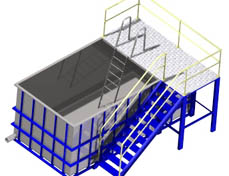 Some product developers may not realise the importance of mechanical design and prototyping when developing a product. Mechanical designers usually create prototypes for visual development at the early stage of product designing. Prototyping is utilised to test and validate human factors, ergonomics mechanical features and aesthetics in the design process.
Some product developers may not realise the importance of mechanical design and prototyping when developing a product. Mechanical designers usually create prototypes for visual development at the early stage of product designing. Prototyping is utilised to test and validate human factors, ergonomics mechanical features and aesthetics in the design process.
Below is a beginner’s guide to help you better understand the basic concepts in this process.
What is prototyping?
Prototyping is a process of building a model or a draft version of an idea. It is a method of product designing that is used in various applications in mechanical engineering and software development. It is also a stage where preliminary changes and product fixes occur before fabrication happens.
Making prototypes is an essential part of product development process. New product designs generally undergo several prototyping processes before they are released for production. However, many first-time engineers make common mistakes in this procedure.
Common mistakes on product development
To make bring some new products to life through production, proper planning and prototyping are always required in advanced. However, the design and prototyping process can fail due to some common mistakes that some developers make. Below are some of these mistakes.
- Not asking for advice on planning
- Aiming for perfection even in the preliminary stage
- Not incorporating feedbacks
- No appropriate tools and equipment used to speed up the process
- Not estimating production cost
- Forgetting the end users
To ensure the success of the product design, there are certain phrases you need to go through.
What is the mechanical design process?
Before starting to prototype, you must prepare the key components below for efficient prototyping and testing:
- People – always consider the people (end users) who will use the product that you are developing.
- Materials – consider the tools, equipment and software that you will use before developing the prototype.
- Location – places and environment wherein your prototyping process will take place
There are a few steps for the design process:
- Research and planning
This is the beginning stage where an idea of a new product is generated and documented. Discussions between clients, draftsmen and mechanical engineers will take place. An initial agreement on how the prototype should be designed will be made.
- Concept development
After the product has been planned, it is now time to develop the product concept and make it become visible in software. Different aspects such as appearance, functionality, mechanisms etc. should be considered carefully.
In this stage, the product design will undergo various trials and modifications. A Computer Aided Design (CAD) mechanical detailing carries out this stage. This tool is also used to evaluate product performance, marketing work and product costing.
- Fabrication And Production
Lastly, in this phase, the product is now ready for fabrication after being tested. The production process can then start if the prototype performs as expected.
There are different mechanical design methods that can be used to testing. Conventional machining is one of them.
Conventional machining
In conventional machining, a 3D CAD design is used to prototype a product. Moreover, CNC machines are utilised to create accurate prototype. Any issues and problems found in the design can also be addressed beforehand.
Conclusion
Mechanical design and prototyping is always required before the manufacturing process, so accurate and well-designed products can be fabricated and produced. With prototyping, the potential issues of product can be detected in the process and massive loss could be avoided.
If you need mechanical design and prototyping services, look for a trusted manufacturer in Australia who has a team of experienced engineers, mechanical designers and draftsmen as well as machinists in-house that uses all the advanced technologies to cater your specific needs.








